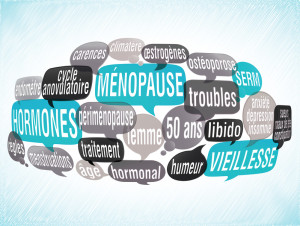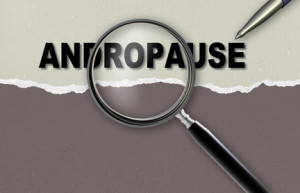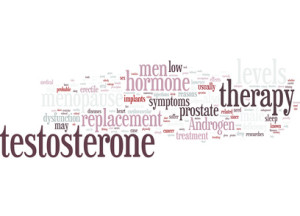Menopause-andropause
Menopause and Andropause: The Next Passage
Menopause / Andropause is the result of age related waning sex steroid levels.

Think steroids. What’s the first thing that comes to mind? What’s the first image? Bulked up Olympic Athletes? Baseball players testifying before congress? Or something else? Sex hormones — it’s what keeps us youthful, vital and playful.
We live in a world loaded with images and mis-perceived words. Menopause has become so much more”acceptable” to talk about. You could go to a local bookstore and find maybe 5 or 6 books on this subject 25-30 years ago. Now you can find an entire section. But andropause was less well known or even accepted until more recently popularized by marketing mad men as the “low-T-syndrome.”
There is one recurring theme where the sexes change roles. Women take charge and solve problems when not feeling well. When “off” men just keep working harder trying to ignore the fact that something may be “not quite right.” So men tend to become overwhelmed and find themselves about 25 years behind women in this final “passage.”
It has been said that we should stop worrying so much about Menopausal symptoms. Just let it unfold. Live with it and it will all pass. Surely this is the way of nature. Grow old gracefully.
But the truth is that we are living in exceptional times.
At the dawn of the 20th century, as consistently difficult as it is to believe, life expectancy was 47 years. By 1936 it had increased to 65 years. Today life expectancy is about 78 years. A dramatic increase, as illustrated by the very fact that for most of human existence, most women never lived long enough to “suffer” the pangs of menopause.
Menopause begins at about 45-47, reaches a crescendo at about 49-51 and climaxes at an average age of 52-53. As many a family can attest, it is not just the women, but the entire family that is carried along for this”memorable” roller coaster ride.

Men experience andropause as a much more subtle ride. A slow, imperceptible, but inexorable slide in the early 50’s where the peak of andropausal symptoms are experienced at 54-56. Old workout routines seem to fail to give the same predicable results. Loss of motivation, drive, strategizing, vim and vigor. Loss of sexual libido and performance. It all declines.
Now we know there is tacit recognition of andropause in men with all the ads and soaring sales of Viagra, Levitra and Cialis. Certainly, there is a perceptible need. Even Hugh Hefner and Bob Dole a have been public about the use and advocacy of these little helpers.
The famous women’s health initiative (WHI) that generated too many negative papers seemed to argue against the use of hormone replacement therapy (HRT) to mitigate the suffering experiences. But the aftermath world wide has been — disastrous for millions of women.
These were Premarin/Provera studies, not Estrogen/Progesterone studies. Provera, a progestin, is not progesterone. It has a different course of action, metabolism and side effect profile. And we know where Premarin comes from — pregnant mares urine. The sad reality is that the really definitive study will probably never be conducted using bioidentical hormones. There is no incentive. But we can be sure of this. Gather a group of 68-70 year old women and there is a far greater likelihood the topic of discussion will turn to the daily aches and pains of “growing older.” Like out of a Rolling Stones lyric,” what a drag it is growing old.” But you know better than that. That’s hormones talking.
Estrogen helps revitalize your hair, skin, eye secretions, oral secretions, vaginal secretions, joint secretions. It mitigates so much of the dry eye syndrome, the muscle and joint aches that can be seen it the late 50’s and beyond. Estrogen is reputed to be responsible for over 400 notable functions in the human body.

And men suffer quite similar problems. Joints and muscle aches, loss of muscle mass, sarcopenia and strength. We men are conditioned to tough it out, to keep quiet about our failings, so we seek advice only when there is intractable pain or something is about to fall off. That is why we find ourselves 25 years behind the curve in seeking the same therapies that women have enjoyed. Physiologic testosterone therapy improves what could be called”the dwindles” Just quietly fading away.
There is a common notion in the medical community that testosterone therapy should be based on demonstrable pathology, that it causes prostate cancer or leads to tempestuous and anti-social maladaptive behavior. But these stereotypes are usually based on the zealous, uncontrolled and dangerous steroid use in young body builders. Responsible, carefully measured and monitored physiologic and diurnal (daily) dosing of testosterone restores confidence, motivation and “centering” — more able to cope with the daily stresses and demands of the workplace or financial demands. Men regain that spring in their step, a gleam in their eye and the joint pains and lack of purpose fade. Remember the famous scene out of Cocoon where Don Ameche and his friends are all jumping into the pool like 8 year olds?
We have a choice. We can listen to those who say this is but a natural evolution of living or getting old. Don’t tamper with nature. But we are living so much longer and deserve to live healthy, productive and … happy lives. It has been called improving our HealthSpan — the number of years we live in optimal health.
Life, liberty and the pursuit of happiness.

This is at the essence of the newly emerging clinical practice of Anti-Aging medicine, rejuvenation medicine, or longevity medicine — the restoration of function, purpose and joy. The time for a paradigm shift in thinking and doing is upon us. So stay tuned for more on these life passages.
Philip Lee Miller, MD
Founder and CEO, California Age Management Institute [formerly Los Gatos Longevity Institute]
Author, the Life Extension Revolution
Adapted from the original article published in the Affluent newspaper
California Age Management Institute
Monterey, CA, USA
(408) 358-8855 tel
copyright © 2006-2016 California Age Management Institute.
All rights reserved.
Most recent update: January 19, 2016
4 thoughts on “Menopause-andropause”
Hello Pam,
I will comment online briefly for the benefit of all those reading our blog. And be certain to pass this information on to many others.
There is unfortunately a very common misconception in the GYN community. It is widely believed that once you have a hysterectomy you no longer need progesterone. This is errant thinking. There are progesterone receptors in your brain, bone, gut and elsewhere, in addition to the uterine lining. So that progesterone has many more functions than simply regulating a menstrual cycle.
Progesterone is antiproliferative. It prevents breast cancer. So for that reason alone progesterone even post hysterectomy is essential. And in reasonably aggressive doses.
Now with respect to estrogen, I will quote a few references and links within our blog to illustrate that the women’s health initiative was seriously misinterpreted. Even the original researchers issue clarifying statements within one year after the study results were published.
Estrogen is essential for healthy cardiovascular function. It does not cause heart disease. It prevents heart disease. There is no significant evidence proving that estrogen causes cancer. With an emphasis on causality. In some instances it may promote cancer. See this link on breast cancer
But again, in reviewing the results of the Women’s Health Initiative you will see that the difference is between absolute and relative statistics. The absolute increase in all adverse events from Prempro was less than 1%.
The emphasis is on Prempro. There is good evidence that the Pro in PremPro was Provera. This is not Natural Progesterone. It is a Progestin with totally different side effects. It not the Premarin that is the risk. Premarin and all estrogens did not cause significant increases in any forms of cancer or serious disease.
This is why patients continue with hormone replacement therapy for lifetime.
To be continued in private. Thank you for writing.
Philip Lee Miller, MD
Dr. M
California age and Institute
Hi Dr Miller
I wishe I lived closers so I could more easily be a nice active patient. I have until recently been able to convince my Sacramento MD to continue the vivelle patches. She stopped the natural progesterone a couple of years after I had a hysterectomy. I’m coming up on my 61 birthday so she system it’s time to stop the hormones. She is worried about my CAD and references the women health study. Is there a certain age really? I stopped the patches, after slowly titraring a month ago. I really want to know if stopping is what is best for me. I am getting anxious about the impending changes to come, skin, mental function, etc.
Thank you for taking the time to read our pearls of wisdom
Thank you for your visit and words of appreciation.